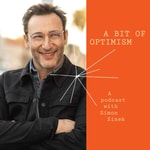ZOE Science & Nutrition – Détails, épisodes et analyse
Détails du podcast
Informations techniques et générales issues du flux RSS du podcast.

ZOE Science & Nutrition
ZOE
Fréquence : 1 épisode/5j. Total Éps: 236

Classements récents
Dernières positions dans les classements Apple Podcasts et Spotify.
Apple Podcasts
🇨🇦 Canada - nutrition
28/07/2025#1🇨🇦 Canada - healthAndFitness
28/07/2025#17🇬🇧 Grande Bretagne - nutrition
28/07/2025#1🇬🇧 Grande Bretagne - healthAndFitness
28/07/2025#1🇬🇧 Grande Bretagne - General
28/07/2025#27🇩🇪 Allemagne - nutrition
28/07/2025#7🇺🇸 États-Unis - nutrition
28/07/2025#2🇺🇸 États-Unis - healthAndFitness
28/07/2025#38🇫🇷 France - nutrition
28/07/2025#5🇫🇷 France - healthAndFitness
28/07/2025#78
Spotify
🇬🇧 Grande Bretagne - health & fitness
28/07/2025#5↘🇬🇧 Grande Bretagne - top
28/07/2025#89↘🇬🇧 Grande Bretagne - trending
28/07/2025#104↘🇬🇧 Grande Bretagne - trending
27/07/2025#100↘🇬🇧 Grande Bretagne - top
27/07/2025#87↘🇬🇧 Grande Bretagne - health & fitness
27/07/2025#4→🇬🇧 Grande Bretagne - health & fitness
26/07/2025#4↘🇬🇧 Grande Bretagne - trending
26/07/2025#97↘🇬🇧 Grande Bretagne - top
26/07/2025#83→🇬🇧 Grande Bretagne - health & fitness
25/07/2025#3→
Liens partagés entre épisodes et podcasts
Liens présents dans les descriptions d'épisodes et autres podcasts les utilisant également.
See all- https://www.instagram.com/doctors_kitchen
702 partages
- https://www.instagram.com/theguthealthmd
186 partages
- https://www.instagram.com/drtaraswart
116 partages
- https://zoe.com/freeguide
113 partages
- https://zoe.com/podcast
13 partages
- https://foodandmoodcentre.com.au/
9 partages
- https://twitter.com/drwilliamli
16 partages
- https://twitter.com/EricTopol
15 partages
- https://twitter.com/timspector
14 partages
Qualité et score du flux RSS
Évaluation technique de la qualité et de la structure du flux RSS.
See allScore global : 69%
Historique des publications
Répartition mensuelle des publications d'épisodes au fil des années.
Recap: How to pick the right bread for your health | Prof. Tim Spector and Vanessa Kimbell
mardi 3 septembre 2024 • Durée 15:12
How to eat 30 plants this week | Hugh Fearnley-Whittingstall and Prof. Tim Spector
jeudi 29 août 2024 • Durée 01:09:02
Recap: What Prof. Tim Spector got wrong about Mushrooms and UPFs
mardi 30 juillet 2024 • Durée 12:19
Signs of an unhealthy gut
jeudi 26 janvier 2023 • Durée 21:54
How to improve blood sugar control with exercise
jeudi 19 janvier 2023 • Durée 46:56
Foods to lower your cholesterol
jeudi 12 janvier 2023 • Durée 20:41
Should we be worried about strep A?
jeudi 5 janvier 2023 • Durée 46:39
How to make New Year’s resolutions stick
dimanche 1 janvier 2023 • Durée 46:35
The health benefits of eating together
jeudi 29 décembre 2022 • Durée 13:54
Tim Spector’s journey from health crisis to healthy eating - a chapter from Food for Life
jeudi 22 décembre 2022 • Durée 29:06









